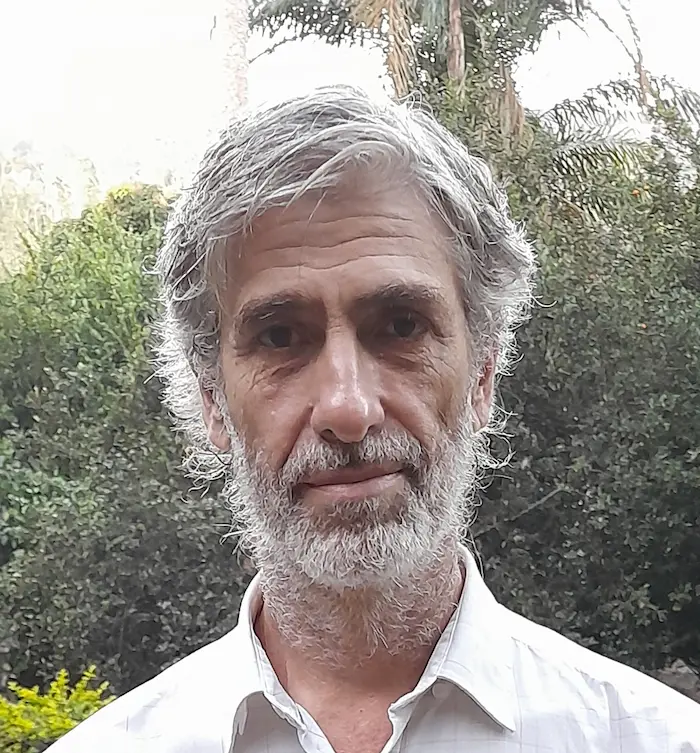Fernando Mendive, PhD

Fernando Mendive, PhD
Title
Location
Pronouns
Education
about
Faculty Profile
During the last two decades, Fernando has been exploring Amazonian biodiversity and the associated indigenous knowledge, two precious heritages deeply interlinked in the Amazonian culture. He believes that these two legacies are not only vital for Amazonian people but also for humanity to thrive. During this period, he has been the scientific coordinator of the Takiwasi Center and the principal investigator of the ATOP Project (Ayahuasca Treatment Outcome Project) focused in the medicinal indigenous knowledge and how it may help non-indigenous people to heal from addictions and other mental diseases that are poorly addressed by the modern paradigm of health. He has also led a phytopharmaceutical laboratory specialized in developing, producing and commercializing natural health products from Amazonian medicinal and aromatic plants. In this role, he conceived and implemented an intercultural methodology that facilitates the dialog and cooperation between indigenous people´s traditional knowledge, pharmaceutical technology, marketing and modern commercial approaches to develop and introduce products into the market, building up impact business models. To achieve this venture, he has collaborated with governmental and non-governmental national and international conservation agencies, indigenous communities and organizations, academic and research institutions to create, fund and execute impact projects.
Before his Amazonian experience, he has been interested in understanding living organisms at the molecular level, from bacteria to humans. For his PhD he studied the function of the human thyroid gland focused on the genetic and molecular mechanisms for the production of thyroid hormones in normal and pathological conditions at University of Buenos Aires and University of Salamanca in Spain. After his dissertation he was invited as guest researcher to Antarctica for a project studying the genetics of bacteria adapted to metabolize hydrocarbons from oil spills at low temperatures with bioremediation purposes. He then moved to Europe for a postdoc position at the Free University of Brussels, School of Medicine where he investigated orphan cellular receptors with unknown functions but conserved along the animal kingdom from flies to humans.
Academics & Research
Research Interests
• Understand the key variables behind the success of conservation projects that promote Eco-Business leaded by indigenous people and small farmers
• Explore the indigenous wisdom and medicine through an intercultural epistemology and how they might contribute to broaden the modern health paradigm
outputs
Publications
Mendive F, Giovannetti C, García Arce S Am J Drug Alcohol Abuse. 2023 Nov 10:1-14. doi: 10.1080/00952990.2023.2264466. Epub ahead of print. PMID: 37948338.
Rush B, Marcus O, García S, Loizaga-Velder A, Spitalier A, Mendive F. J Stud Alcohol Drugs. 2023 Aug 24. doi: 10.15288/jsad.23-00005. Epub ahead of print. PMID: 37615330.
Renatto Canepa, Mayra Sihuay, Elsa Wajai, and Fernando Mendive in Socio-Ecological Systems and Decoloniality-Convergence of Indigenous and Western Knowledge edited by Deepa Pullanikkatil and Kerry Hughes, Springer Nature, 2022, page. 299-324.
Jose-Gabriel Leon, Fabio Restrepo, Mario León, Mateo Politi, Fernando Mendive and Orlando Angulo. EC Pharmacology and Toxicology 10.7 (2022): 09-24. DOI: 10.31080/ecpt.2022.10.00757
Alex K. Gearin, Luis E. Luna, Fernando Mendive, Marco Leonti, Claudio Ferrante, Luigi Menghini and Matteo Politi. Front. Pharmacol. 2021. Front. Pharmacol. 12:804254. doi: 10.3389/fphar.2021.804254
Friso F, Mendive F, Soffiato M, Bombardelli V, Hesketh A, Heinrich M, Menghini L and Politi M. Journal of Ethnopharmacology, 2020, Sept, 259, 112885. doi.org/10.1016/j.jep.2020.112885
United Nations Conference on Trade and Development. United Nations Publication, 2017, page. 22-23.
Grants and Awards
2002. Postdoctoral Grant. Institute of Interdisciplinary Research in Molecular and Human Biology (IRIBHM), Faculty of Medicine, Universite Libre de Bruxelles. Awarded by: Franqui Foundation. Duration: 2 years
1998. Research Grant for Foreign Studies “Splicing Regulation of the Human Thyroglobulin Gene”; Molecular Medicine Laboratory. Faculty of Medicine, University of Salamanca, Spain. Awarded by: Spanish Agency for International Cooperation (AECI). Duration: 8 months.
1996: Graduate Research Grant. “Structural Organization and Regulation of the Human Thyroglobulin Gene”. University of Buenos Aires. Duration: 2 years
1998. Research Grant for Foreign Studies “Splicing Regulation of the Human Thyroglobulin Gene”; Molecular Medicine Laboratory. Faculty of Medicine, University of Salamanca, Spain. Awarded by: Spanish Agency for International Cooperation (AECI). Duration: 8 months. 1996: Graduate Research Grant. “Structural Organization and Regulation of the Human Thyroglobulin Gene”. University of Buenos Aires. Duration: 2 years
1993: Undergraduate Research Grant. “Structural Organization and Regulation of the Human Thyroglobulin Gene”. Chair of Genetics and Molecular Biology, Faculty of Pharmacy and Biochemistry, UBA. Awarded by: University of Buenos Aires. Duration: 2 years
Presentations
Centro Nacional de Salud Intercultural, Instituto Nacional de Salud, Ministerio de Salud del Perú. Del 31 de agosto al 02 de septiembre de 2021
Para el Ciclo de Reuniones Técnicas titulado Aprovechamiento Sostenible de las Plantas Medicinales”. Centro Nacional de Salud Intercultural, Instituto Nacional de Salud, Ministerio de Salud del Perú. 18 de agosto de 2021.
Semana Forestal 2020. Centro Federado de Ciencias Forestales, Facultad de Ciencias Forestales, Universidad Nacional Agraria La Molina. 30 noviembre al 02 diciembre 2020. Panelist at the II Exchange Forum Peru – Honduras.
PUR Projet, Fundación Helvetas Honduras, Fundación Madera Verde y Fundación Amazonía Viva. Del 2 al 13 de noviembre 2020
1ra Feria Virtual de Emprendimientos de Indígenas y Productos del Bosque en San Martín. Paz y Esperanza. 13 de noviembre de 2020.
Webinar Internacional “Retos en las investigaciones de plantas medicinales en la Amazonía peruana”. Instituto de Investigación de la Amazonía Peruana. 14 de agosto de 2020.
Cadenas priorizadas de sacha inchik y plantas medicinales. Programa Virtual de Fortalecimiento en Biocomercio para las regiones San Martín, Cusco, Junín, Huancavelica y Loreto. Ministerio de Comercio Exterior y Turismo. 28 de septiembre a 02 octubre 2020.
Moyobamba, San Martín, Perú. 24 de julio de 2019. Use of Non-Timber Forest Resources”. III Encuentro Amazónico de Conservación Voluntaria y Comunal “Amazonia que Late”. Moyobamba, San Martín, Perú. 7 y 8 de diciembre de 2017.